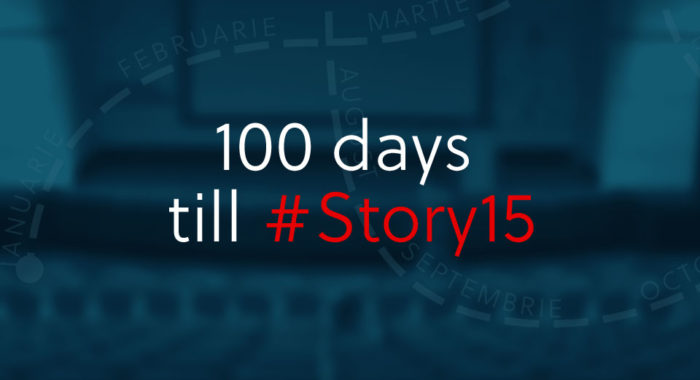“What does a children’s story have to do with secret police documents evidencing someone’s crime against a regime? And what does the story mean twenty seven years after you first copied it from the book, marveling at the noise, the smell, and the neat letter marks of your parents’ typewriter? Think of a large airy room with a big, heavy oak table in the middle of it. The windows are opened and the grapevine bushes crowd around the windowsill. Perched on a chair is a girl who types a story about an old woman. No one thinks to ask what will become of them both.
I sit at a large table in the Reading Room at Consiliul National Pentru Studierea Arhivelor Securitatii (CNSAS), Bucharest, in July 2010, with my mother. We are sifting through the stack of ‘secret’ penal and informative dossiers kept on my father from 1961 up until our emigration to the USA in 1989. Here is the 1983 penal dossier of Ion Bugan, condemned for ‘propaganda against the socialist regime’ for typing fliers against the communist government at an illegally-owned typewriter and holding a public protest against Ceausescu on March 10, 1983. Inside there are photos of the buried typewriter and proofs from the ‘scientific analysis’ of the keyboard, linking my father to his crime. Among the papers, this fragment from my childhood:
‘Once upon a time there was a very old woman who had three sons who were sound of bodies but weak in their minds. The old woman wanted to keep them close by and devised a plan to convince all of them to build houses in her backyard where they could bring their wives and raise their families. When time came for the oldest son to get married, the old woman was overcome with joy at how she will make her daughter-in-law work all day.’ And then the story cuts off. My child hands had got tired of typing coherent things and made rows of letters and numbers for the rest of the page. I must have been between 10 and 11 years old when I typed that. And now the story finds me, as much as I find it from the improbable mess of time, confiscation, archiving, transfer across the country, from our beautiful little house to this place. I no longer remember what has happened to the old woman and her three sons with their wives—maybe it was a lovely story or maybe it was one of those vicious, sad, stories about how much mothers-in-law and daughters-in-law hate each other.
As my mother and I collect our bags and head for the airport where we will board our respective planes for our different homes in our exile, I feel both shaken and touched by the reminder that this story represents our instinct as people from the provinces: to share the same house and the same yard for generations, to built houses for our children in our backyards, to never leave home. Indeed, in my village, the newlyweds used to build rooms at the back of the parental house, and slowly take over the gardening. The old part of the house would crumble and the new part would rise to life. In 2010 when I visited my grandparents’ house twenty years after our expulsion, I still found two standing rooms anchored by the new house which the current residents, my cousins, attached to the back walls. That connection between us and our land has become now only a story. The story about the old woman, in the context of the archives, has transformed into an official document about a very private and playful moment I experienced as a child, looking around for things to type. It is testimony and evidence of how our intimate lives were monitored, dictated, and kept as evidence to be used against us. The story is a reminder of the continuity and tradition I expected from life once upon a time. My expectations, however, have changed since I packed my one suitcase and left my village for good. Now that these expectations no longer exist, it is moving to find trace of them, so there is irony here too: what was taken from me was kept intact. Time stops in the archives, the moment of my childhood is preserved on this sheet of paper. It’s a form of museum where you can find out what people were reading about and dreaming about in Romania during totalitarianism. During my recent visit to Romania, I found no indication of the spirit of this story: the Revolution generation has turned into a generation of emigrants. In 2010 I found villages abandoned by the young and left to old people and children, and it is hard to know what stories they tell each other now. The totalitarian regime in the communist Romania, by first monitoring and archiving the evidence of people’s imagination, alienated people from their traditions. My situation as a person who will not and indeed can no longer return and built a life on old dreams in my native village, is emblematic of the situation of a generation: forced into emigration first by political repression and then by economic hardship, people have abandoned hearths and hearts, and are not returning home. The story I typed as a child—essentially a story of continuity between generations and their land—now remains archived in Bucharest as a document about a people and their past.”



